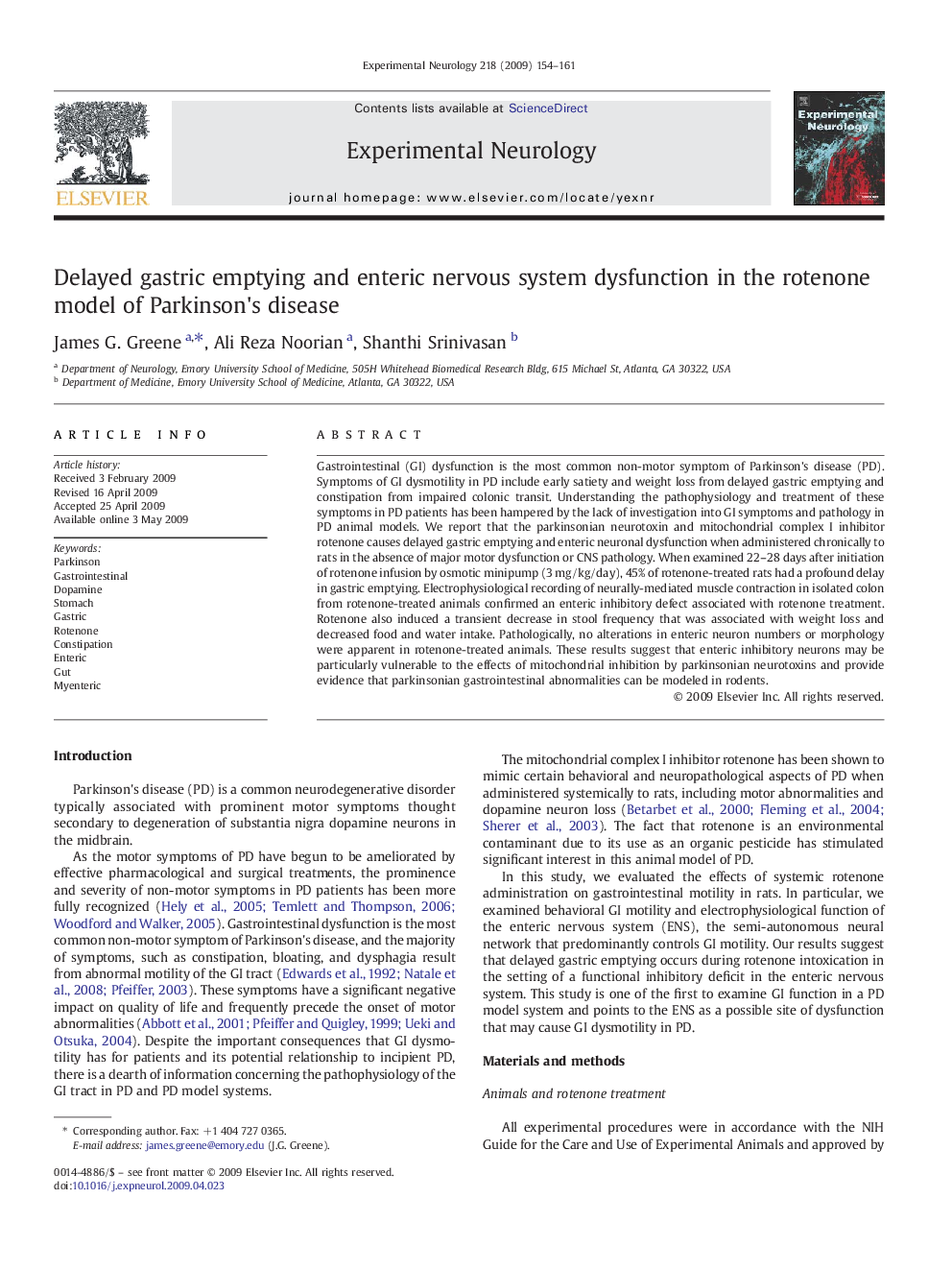| Article ID | Journal | Published Year | Pages | File Type |
|---|---|---|---|---|
| 3056374 | Experimental Neurology | 2009 | 8 Pages |
Gastrointestinal (GI) dysfunction is the most common non-motor symptom of Parkinson's disease (PD). Symptoms of GI dysmotility in PD include early satiety and weight loss from delayed gastric emptying and constipation from impaired colonic transit. Understanding the pathophysiology and treatment of these symptoms in PD patients has been hampered by the lack of investigation into GI symptoms and pathology in PD animal models. We report that the parkinsonian neurotoxin and mitochondrial complex I inhibitor rotenone causes delayed gastric emptying and enteric neuronal dysfunction when administered chronically to rats in the absence of major motor dysfunction or CNS pathology. When examined 22–28 days after initiation of rotenone infusion by osmotic minipump (3 mg/kg/day), 45% of rotenone-treated rats had a profound delay in gastric emptying. Electrophysiological recording of neurally-mediated muscle contraction in isolated colon from rotenone-treated animals confirmed an enteric inhibitory defect associated with rotenone treatment. Rotenone also induced a transient decrease in stool frequency that was associated with weight loss and decreased food and water intake. Pathologically, no alterations in enteric neuron numbers or morphology were apparent in rotenone-treated animals. These results suggest that enteric inhibitory neurons may be particularly vulnerable to the effects of mitochondrial inhibition by parkinsonian neurotoxins and provide evidence that parkinsonian gastrointestinal abnormalities can be modeled in rodents.
